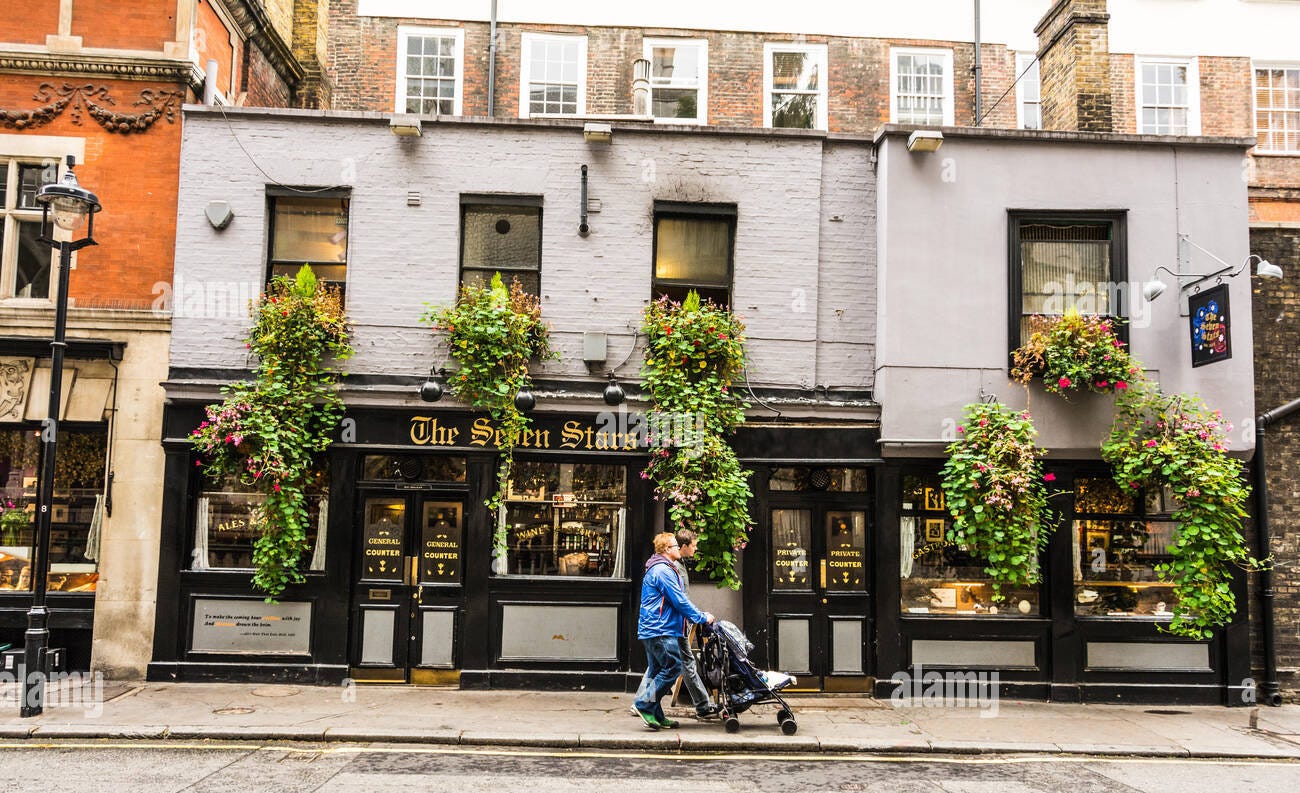There are many great privileges to a career at the Bar. It’s intellectually stimulating; I have remarkably gifted colleagues and solicitors; the cases are often of significance and push the law’s proverbial envelope. The Seven Stars1 is still a beautiful pub.
Another something I love, though, and which may seem trivial, is the little suite of rituals we have when we’re in court. Obviously, for some big things we have our wigs and our gowns and our trachea-traumatising throat pins. But even in less grandiose attire, we observe an unwritten code of lawyerly conduct. This is not, I hasten to say, advocacy for gate-keeping or for obscurantism in the law. It is advocacy, however, for the administration of justice taking place in a fashion that distinguishes it from a mere “meeting” or - these days - a “call”.
Court Rise!
Much of what one sees in courtroom TV dramas is inaccurate. I am now banned from watching any because Nav does not appreciate my scoffing, however subtle it undoubtedly is, at last-minute evidence, surprise witnesses and theatrical cross-examinations performed while the barrister gets their steps in around a grand courtroom that doesn’t leak. Nonsense!
But one thing that does happen is the “court rise!” ritual. Someone from offstage (the judges’ domain hidden like Platform 9 3/4 in the very bricks of the court building) knocks and gives the line. We all stand — some old hands, especially the person likely to speak first, don’t sit down in the first place, instead pacing about behind the bar, cockily or nervously. This is a dangerous moment when robed: the thick collar you have to wear with a court tunic is pinned on with a little stud at the back which has a habit of getting tangled up with the horsey tail on the wig; leaping to one’s feet can have the effect of causing the thing to be pulled off backwards, exposing one’s sweaty brow to Their Unimpressed Lordships. In their Star Trek-style flowing gowns and unbewiggèd, They no longer live with such danger.
Madam, Sir, Your Honour, M’lady
Deferring to the office, the judiciary keep their rightly grand titles. “Madam” and “Sir” for the lowest tier, “Your Honour” for Circuit Judges (who go by His or Her Honour Judge X) and, in the vocative, “My Lord” or “My Lady” or otherwise “Your Lordship” or “Your Ladyship” for High Court Judges or grander. Some are “Master” (but not “Mistress”…!)
We all have stories of unrepresented litigants referring to them as “Your Majesty” or “Your Holiness”. I once had a litigant refer to a High Court Judge as “love”. The judge was a man.
M’learned friends
The bitterer the fight, the more often I am someone’s “learned” friend. Still, isn’t it nice to be learned? Courtesy in court - well it’s in the very word.
Theatrical facial expressions when one’s opponent says something surprising
We all know it doesn’t help. But so many of us do it anyway. The eyebrows jump together, or wigwards; the chin juts off to the side. I once had a leader in court snap his neck round so quickly to look quizzically at me that he still suffers from mild litigation whiplash.
Statuesque immovability when a client says something surprising
Conversely, when a client is being cross-examined and entirely torpedos their own case in a word or three, there is nothing for it other than stoically to stare into space. A quick look at the clock or the royal seal: honi soit qui mal y pense.
Some have so admirable a knack for this that they leave the hearing entirely. I once cross-examined a witness into admitting that she had entirely made up one of her allegations. When I suggested to the judge that m’learned friend might like some time to take some instructions (ie, withdraw the whole case toot sweet), it took the poor guy half a minute to remember he was in the room with us. Bravo.
Post-Court pints
Not just the m’learned friend thing, this can be much more meaningful. There is nothing more heartening when first starting out than having a much more senior, much more learned opponent who, after an arduous and bitter trial, drops you a line to tell you you did well. This is even better when done, once the dust has settled, in liquid fashion in the Seven Stars or Cittie of York.
Some are not so subtle: when I was still a pupil, I had the anguish of a full day in court on the day of the annual Chambers summer party (at which all of my putative colleagues attend and invite all of Chambers’ solicitor clients). This party tends to fall, cruelly, mere days before the tenancy decision (ie, the evening on which all the barristers in chambers come together like the Athenians and vote on whether or not to allow you to stay in chambers). I had been against a seasoned old litigator in Tribunal that day, seeking relief in respect of something my own clients had done wrong procedurally. My opponent turned up at the party later on that evening and partook well of the Chambers-subsidised Champagne. I was mutely and awkwardly chatting with some senior barristers and clients when he comes over. '“Ey”, he says, putting his arm round my nervous shoulder, “this young man has just royally kicked my arse!”. Not so young anymore, but still in Chambers.
Little courtroom rituals. I love little courtroom rituals.
Regular readers may like to note that the Seven Stars (on Carey Street, just opposite the backdoor to the Royal Courts of Justice) is the only proper pub in London that serves a decent Gin Martini.





